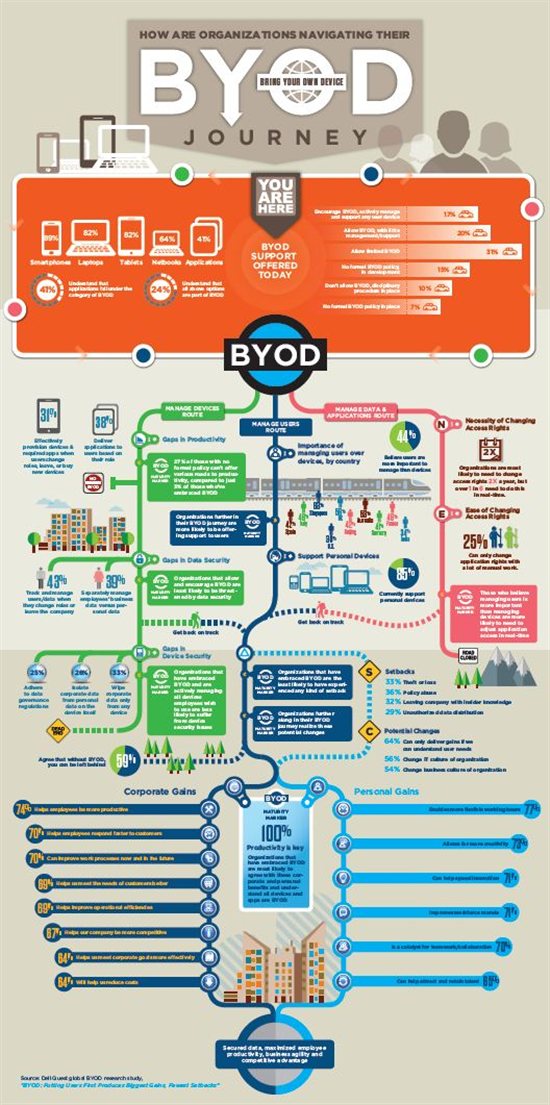BYOD (bring your own device) is a growing trend that doesn’t look to be going away any time soon. Although some managers and business owners may have initial concerns about embracing this trend due to security and productivity concerns, BYOD can actually be used to your company’s advantage.

What is BYOD?
BYOD refers to allowing (even encouraging) employees to bring their own mobile devices to the workplace and to use them to access company documents and customer information in lieu of the traditional desk top computer. According to a white paper published by Ovum, 75 percent of companies in emerging markets, such as Brazil and Russia, allow BYOD, whereas only about 44 percent of companies in established markets like the United States and the United Kingdom have embraced the trend.
How to use BYOD to your company’s advantage
The concept of BYOD has a lot to recommend it. Employees, especially younger workers, like the idea of being able to handle their work and leisure activities on a single device. Increasingly, as employees work from home at least part of the week, a BYOD policy insures that they always have access to the company data needed to do their jobs. There’s also no denying that having employees use their own iPods, laptops and/or tablets can reduce your company’s IT expenditures significantly. Large companies, such as Kraft Food and Procter and Gamble have adopted BYOD policies. Even the U.S. government is working on a new BYOD inititiative. However, some industries are better suited to BYOD that others.
Industries that can benefit most from BYOD
Not surprisingly, BYOD is tolerated, even encouraged, more in high-tech and creative fields that tend to have a younger and more innovative workforce. Below are just a few industries that are using BYOD with exciting results:
1. Manufacturing companies. Companies where having a computer on every desk is not the norm can benefit greatly from BYOD. For example, manufacturing facilities where only the office staff has computers can improve communications and encourage input from workers in the plant by allowing supervisors to use their own devices.
2. Headhunters and employee search firms. For companies that hire people, BYOD allows them to take the company out where the potential employees are–to coffee shops, to parks, even to people’s homes. As most working people are understandably reluctant to discuss a possible new job during regular work hours, BYOD gives hiring managers the flexibility to take the office to them.
3. Companies with multiple sales offices. BYOD is an ideal solution for keeping the sales force on the same page when employees are on the road or work out of multiple sales offices. Having a single company/personal device at home can insure that a sales person never misses that important customer call or memo from the home office.
The world of BYOD can seem like a scary place for IT managers and company owners trying to maintain security and control or company documents. However, the concept, used carefully, can offer improved productivity, better communication and attract better-qualified employees to your company.

Image author owned
Author Matt Smith is a Dell employee who writes to help raise awareness on the topic of Bring Your Own Device solutions and other network management subjects.

